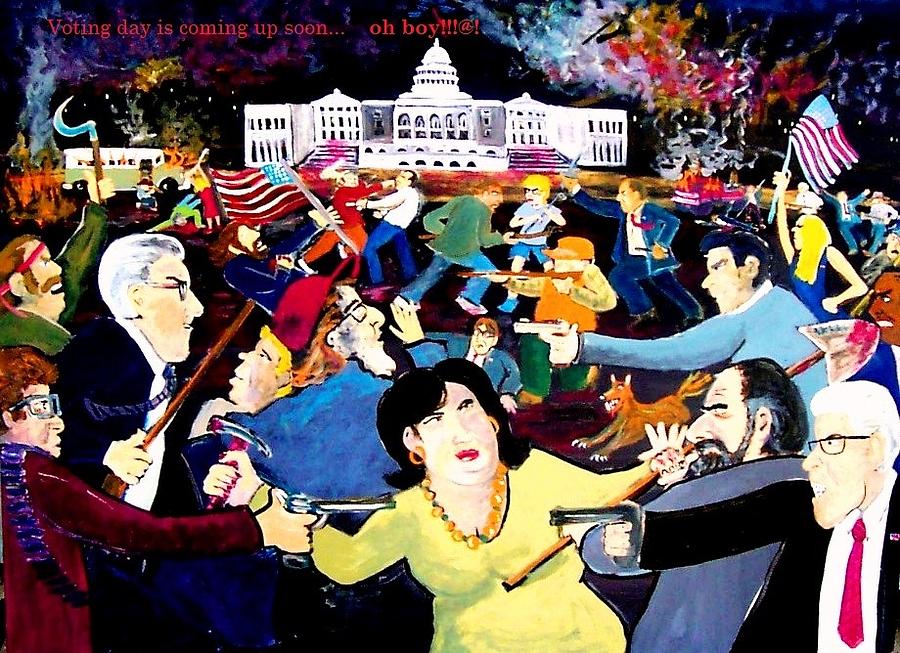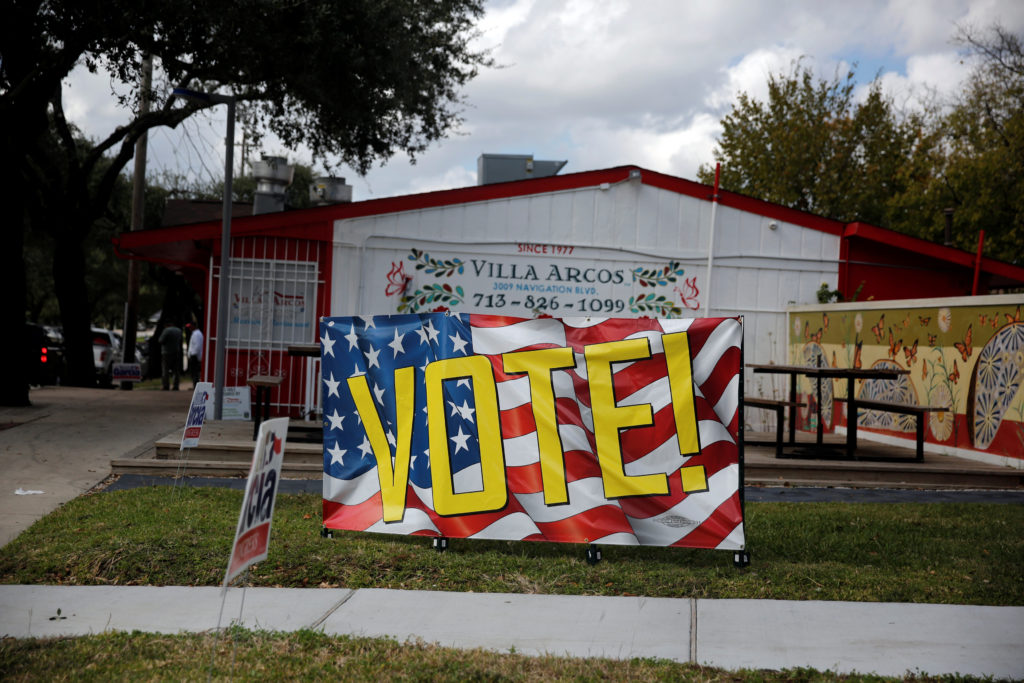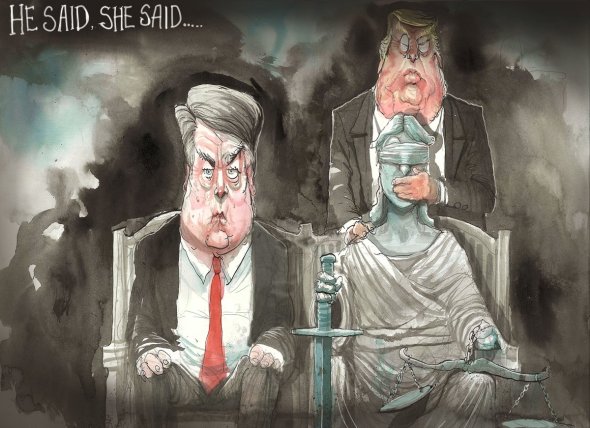And Marie Masferrer, a board member of the Florida Association for Media in Education and a school librarian who used to work in the Manatee County system and remains in close touch with former colleagues in that district, said they have told her that students are struggling.
Tuesday Reads: Stormy Weather
Posted: January 31, 2023 Filed under: abortion rights, Afternoon Reads, Donald Trump, SCOTUS | Tags: Black history, book banning, Dobbs decison, Durham investigation, George Santos, LGBT rights, public health emergency, Republican antiabortion proposals, Roe v. Wade, Ron DeSantis, U.S. Supreme Court 11 Comments
Cliffs of Varengeville, gust of wind, by Claude Monet
Good Afternoon!!
We can all agree that the right-wingers on the Supreme Court have created problems not only for women, but for all of American society. They seem determined to turn this country into a theocracy dominated by so-called “christians” who don’t follow Jesus’s teachings. In fact, they don’t seem interested in the New Testament at all. They prefer the fire and brimstone god of the Old Testament.
Linda Greenhouse, who reported on the Court for The New York Times for many years before leaving in 2021, has returned with an important op-ed.
The New York Times: The Latest Crusade to Place Religion Over the Rest of Civil Society.
Federal civil rights law requires employers to accommodate their employees’ religious needs unless the request would impose “undue hardship on the conduct of the employer’s business.” Congress didn’t bother to define “undue hardship,” so 46 years ago the Supreme Court came up with a definition of its own.
An accommodation requiring an employer “to bear more than a de minimis cost” — meaning a small or trifling cost — need not be granted, the court said in Trans World Airlines v. Hardison. In that case, an airline maintenance worker claimed a legal right to avoid Saturday shifts so he could observe the tenets of the Worldwide Church of God, which he had recently joined. Ruling for the airline, the court noted that if one worker got Saturdays off for religion reasons, the burden would fall on other workers who might have nonreligious reasons for wanting to have the weekend off.
“We will not readily construe the statute to require an employer to discriminate against some employees in order to enable others to observe their Sabbath,” the court said.
Treating religion as nothing particularly special, the decision reflected the spirit of the times but was deeply unpopular in religious circles. There have been many attempts over many years to persuade Congress to amend the law, Title VII of the Civil Rights Act of 1964, to shift the balance explicitly in favor of religiously observant employees. Between 1994 and 2019, more than a dozen such bills were introduced. None emerged from Congress.
And so now, a very different court from the one that ruled 46 years ago is about to do the work itself.
Now the Court has agreed to hear a case that may move us further away from the separation of church and state.
The appeal was brought by a conservative Christian litigating group, First Liberty Institute, on behalf of a former postal worker, Gerald Groff, described as a Christian who regards Sunday as a day for “worship and rest.”
Flood at Port Marly, by Alfred Sisley
Mr. Groff claimed a legal right to avoid the Sunday shifts required during peak season at the post office where he worked. Facing discipline for failing to show up for his assigned shifts, he quit and filed a lawsuit. The lower courts ruled against him, with the Philadelphia-based U.S. Court of Appeals for the Third Circuit expressing no doubt that the disruption and loss of morale Mr. Groff’s absences caused in the small rural post office where he worked exceeded the de minimis threshold that the Supreme Court’s 1977 precedent requires an employer to demonstrate.
The decision to hear his appeal brings the Supreme Court to a juncture both predictable and remarkable. It is predictable because Justices Samuel Alito, Clarence Thomas and Neil Gorsuch have all called for a case that would provide a vehicle for overturning a precedent that is clearly in tension with the current court’s privileging of religious claims above all others, whether in the context of public health measures during the Covid-19 pandemic or anti-discrimination claims brought by employees of religious organizations.
The court in 1977 worried about the burden on nonreligious workers from accommodations granted to their religious colleagues. To today’s court, as Justice Alito has repeatedly expressed it, the real victims of discrimination are those who take religion seriously.
Read the rest at the NYT link.
The wingnuts on the Supreme Court have already dealt a terrible blow to women’s rights by giving “christian” evangelicals what they long dreamed of–overturning nearly 50 years of women’s rights to make their own reproductive choices. The reversal of Roe v. Wade also drove a truck through the wall of separation between church and state, since the anti-abortion movement is largely based on “christian” evangelical “values.” Ever since that decision, republicans in state legislatures have worked to make getting an abortion more difficult than ever–in some ways more difficult than before Roe.
Abigail Tracy at Vanity Fair: Republicans Are Only Getting Sneakier With Their Antiabortion Proposals.
Kansans may have resoundingly rejected an antiabortion referendum last year, by a striking double-digit margin, to ensure reproductive rights remain enshrined in the state constitution, but that wasn’t deterrence enough for the state’s Republican legislators. Nor was, apparently, the Republican Party’s relatively poor performance this past midterm cycle—one largely defined by the fall of Roe v. Wade. “I’m hearing a lot from my constituents who believe we should continue to do more to help the unborn,” Wichita state senator Chase Blasi told reporters earlier this month, proposing a law that would allow cities and counties to regulate abortions, in spite of state protections.
These first few weeks of 2023 suggest it’s not that Republican lawmakers missed the abortion memo—they simply don’t seem to care. In Washington, a newly empowered Republican House passed an antiabortion bill during its first full week in the majority. And across the country, Republican state lawmakers continue the crusade against reproductive rights, attempting to find ways to circumvent popular opinion, and even statutory protections.
“We knew all along that they weren’t going to be satisfied with overturning Roe v. Wade,” Abby Ledoux, a spokesperson for Planned Parenthood Action Fund, says of antiabortion lawmakers and activists in an interview with Vanity Fair. Reflecting on the slew of legislation that has been introduced in state houses across the country so far this year, Ledoux adds, “They’re not done and they’re coming for more rights.”
Wind-Beaten Tree, by Vincent Van Gogh
Since the start of the year, across 27 states, more than 105 bills that would restrict abortion have been filed or prefiled—(meaning, not all of them have been formally introduced), according to Planned Parenthood Action Fund. Many of these bills would ban abortion—some at fertilization; six bills—filed in Kansas, Missouri, New Hampshire, Texas, Wyoming, and West Virginia—would specifically target medication abortions, according to the fund; others would impose harsh criminal penalties for doctors and abortion-seekers. Of course, not all of these bills are expected to pass, but they do lay bare the ever changing legal and political landscape in post-Roe America.
It isn’t just the overt attempts at restricting abortion access that concern reproductive rights activists. But also what Ledoux refers to as “underhanded attempts” and “work-arounds” that have the potential to “subvert democracy, to thwart the will of the people, and to really rig the game” in pursuit of unpopular political agendas. For instance, in Ohio, Republican lawmakers introduced a bill that would require a supermajority threshold of 60%, as opposed to a simple majority of voters, to pass ballot measures to amend the state constitution. Similar legislation was also introduced in Arizona.
According to Axios, the Biden administration is considering fighting back with actions they previously shied away from: Biden administration mulls public health emergency declaration on abortion.
The Biden administration is weighing a plan to declare a public health emergency that would free up resources to help people access abortions.
….Both abortion rights advocates and Democratic lawmakers have urged the Department of Health and Human Services and President Biden to take such a step in response to the overturning of Roe v. Wade, which they say has created a “full-scale reproductive health crisis” across the U.S.
The lawmakers argued that such a move would allow the administration to help support states that protect abortion, deploy Public Health Services Corps teams and give the government “the ability to accelerate access to new medications authorized for abortion.”
….”There are discussions on a wide range of measures … that we can take to try to protect people’s rights,” HHS Secretary Xavier Becerra told Axios during a pair of Monday public events that touched on reproductive health access.
“There are certain criteria that you look for to be able to declare a public health emergency. That’s typically done by scientists and those that are professionals in those fields who will tell us whether we are in a state of emergency and based on that, I have the ability to make a declaration,” Becerra added, when asked about a public health emergency declaration on abortion.
He said that there hasn’t been a “full assessment” on what a declaration on abortion would look like and whether conditions merit it, but there’s still “an evaluation” on the topic.
More details at the Axios link.

Dodges Ridge, by Andrew Wyeth
Speaking of politicians trying to take away our rights, Ron DeSantis is going further than almost any other governor. He really doesn’t want school children to learn anything about LGBT issues or about the history of African Americans in the U.S.; and he’s banning so many books that the library shelves in schools are nearly empty.
This is from a guest essay at The New York Times by Janai Nelson, president and director-counsel of the Legal Defense Fund: Ron DeSantis Wants to Erase Black History. Why?
An unrelenting assault on truth and freedom of expression in the form of laws that censor and suppress the viewpoints, histories and experiences of historically marginalized groups, especially Black and L.G.B.T.Q. communities, is underway throughout the country, most clearly in Florida. The state’s Department of Education recently rejected a pilot Advanced Placement African American studies course from being offered in Florida’s public high schools.
Under Gov. Ron DeSantis’s “Stop WOKE” law — which would limit students and teachers from learning and talking about issues related to race and gender — Florida is at the forefront of a nationwide campaign to silence Black voices and erase the full and accurate history and contemporary experiences of Black people. The NAACP Legal Defense and Educational Fund Inc., the American Civil Liberties Union, the A.C.L.U. of Florida and Ballard Spahr filed a lawsuit on behalf of university professors and a college student opposing the “Stop WOKE” law and, along with a second lawsuit, won a preliminary injunction blocking Florida’s Board of Governors from enforcing its unconstitutional and racially discriminatory provisions at public universities.
Florida’s rejection of the A.P. course and Mr. DeSantis’s demand to excise specific subject areas from the curriculum stand in stark opposition to the state-issued mandate that all students be taught “the history of African Americans, including the history of African peoples before the political conflicts that led to the development of slavery, the passage to America, the enslavement experience, abolition and the contributions of African Americans to society.” [….]
Mr. DeSantis’s “Stop WOKE” law relegates the study of the experiences of Black people to a prohibited category. The canceling of any students’ access to accurate, truthful education that reflects their diverse identities and that of their country should chill every American. Not only do these laws offend First Amendment freedoms of speech and expression; to the extent they harm certain groups on the basis of race, gender or other protected status, they also violate principles of equal protection. And they are a chilling precursor to state-sponsored dehumanization of an entire race of people.
This disturbing pattern of silencing Black voices and aggressive attempts to erase Black history are one of the most visible examples of performative white supremacy since the presidency of Donald Trump.
There’s much more at the NYT link.
On DeSantis’s book banning project:
Hannah Natanson at The Washington Post: Hide your books to avoid felony charges, Fla. schools tell teachers.
Students arrived in some Florida public school classrooms this month to find their teachers’ bookshelves wrapped in paper — or entirely barren of books — after district officials launched a review of the texts’ appropriateness under a new state law.
School officials in at least two counties, Manatee and Duval, have directed teachers this month to remove or wrap up their classroom libraries, according to records obtained by The Washington Post. The removals come in response to fresh guidance issued by the Florida Department of Education in mid-January, after the State Board of Education ruled that a law restricting the books a district may possess applies not only to schoolwide libraries but to teachers’ classroom collections, too.
House Bill 1467, which took effect as law in July, mandates that schools’ books be age-appropriate, free from pornography and “suited to student needs.” Books must be approved by a qualified school media specialist, who must undergo a state retraining on book collection. The Education Department did not publish that training until January, leaving school librarians across Florida unable to order books for more than a year.
Breaking the law is a third-degree felony, meaning that a teacher could face up to five years in prison and a $5,000 fine for displaying or giving students a disallowed book.
I can just imagine the kinds of people who would take one of those “media specialist” jobs and then undergo “state retraining.”
The efforts to conceal titles in Manatee and Duval have stirred outrage from educators and parents, many of whom shared images of bare wooden shelves or books veiled behind sheets of colored paper. Teachers wrote in Facebook posts and text messages that they are angry and disheartened. District officials in both counties have emphasized that the removals are temporary and will last only until staff can determine whether the titles meet the standards imposed by Florida law.
Stormy Weather, by Alexander Nepote
Michelle Jarrett, president of the Florida Association of Supervisors of Media, which assists school library administrators and programs statewide, said that “closing and covering up classroom libraries does nothing to ensure Florida’s students remain on track for reading success.” [….]
At one school, “the kids began crying and writing letters to the principal, saying, ‘Please don’t take my books, please don’t do this,’” Masferrer said.
If DeSantis runs for president in 2024 against Trump, we are going to witness a Republican shit show that will be far worse than 2016 and 2020. DeSantis may be pandering to the crazies, but Trump has truly gone over the edge.
Former President Donald Trump in 2018 had an infamous press conference with Russian President Vladimir Putin in the Finnish capital of Helsinki in which he signaled that believed Putin’s denials about having interfered in the 2016 election despite assessments to the contrary from American intelligence agencies.
Four-and-a-half years later, Trump is now touting his trust of Putin over American intelligence agencies as a source of pride.
In a post on his Truth Social account, the former president attacked former officials at the FBI and CIA whom he accused of trying to undermine his presidency by investigating his campaign’s multiple contacts with Russian agents during the 2016 presidential race.
“Remember in Helsinki when a 3rd rate reporter asked me, essentially, who I trusted more, President Putin of Russia, or our ‘Intelligence’ lowlifes,” he wrote. “My instinct at the time was that we had really bad people in the form of James Comey, McCabe (whose wife was being helped out by Crooked Hillary while Crooked was under investigation!), Brennan, Peter Strzok (whose wife is at the SEC) & his lover, Lisa Page. Now add McGonigal & other slime to the list. Who would you choose, Putin or these Misfits?”
I’m getting a headache just reading all this stuff. I hope I’m not giving you one too.

Fishing Boats in Rough Weather, by Ludolf Bakhuizen
Last Friday, Dakinikat wrote about the New York Times article on the failure of the Barr/Durham so-called investigation of the origins of Robert Mueller’s probe of Russian influences on the 2016 Trump campaign. This is a reaction from Greg Sargent at The Washington Post: Awful new details about the Durham probe demand a serious response.
The New York Times disclosed extraordinary new revelations this past week about prosecutor John Durham’s years-long quest to delegitimize the FBI investigation into Russian interference in the 2016 election. In 2019, this obsession of President Donald Trump was initiated by his attorney general, William P. Barr, but as the Times found, Durham’s effort was itself profoundly tainted.
Now, because Democrats have 51 Senate seats after gaining one in the midterm elections, they have subpoena power on Senate committees that were previously divided. That means the Judiciary Committee is in a position to investigate the Barr-Durham escapades.
Sen. Richard J. Durbin (D-Ill.), the Judiciary Committee chair, is signaling such an intent. In an emailed statement, Durbin said that reports of Durham’s “abuses” are “outrageous,” and “one of many instances” in which Trump and Barr “weaponized the Justice Department.”
Durbin added that his committee “will do its part and take a hard look at those repeated episodes, and the regulations and policies that enabled them, to ensure such abuses of power cannot happen again.”
That’s encouraging, but how far will this investigation go? The Times report finds that Barr relentlessly pushed Durham to substantiate Trump’s theory that the Russia investigation was a conspiracy by intelligence and law enforcement against him. But Durham’s effort petered out “without uncovering anything like the deep state plot” invented by Trump and Barr.
Worse, the Times also found bizarre irregularities. Durham relied on Russian intelligence memos to access emails of an adviser to financier George Soros, in hopes of finding evidence of improper collaboration between law enforcement and the Hillary Clinton campaign. It never materialized.
That, plus Barr’s habit of publicly hinting that Durham was on the trail of major wrongdoing — unscrupulously serving Trump’s political interests — were strongly opposed internally by Durham’s top deputy, the Times reports. Similarly, Durham leaned on the department’s inspector general to change his 2019 conclusion that the Russia probe was not politically motivated.
More at the WaPo.

Beach at Scheveningen in Stormy Weather, Vincent Van Gogh
And speaking of corruption, George Santos has decided to recuse himself from House committees. The Washington Post: Rep. George Santos is stepping down from committees amid fabrications about his biography.
Embattled Rep. George Santos (R-N.Y.) told House Republicans on Tuesday that he will step down temporarily from his committee assignments amid multiple investigations into his campaign finances after he lied about key aspects of his biography.
It sounds like it wasn’t really Santos’ decision, lol. I guess McCarthy was sick and tired of the press hounding him about Santos.
That’s all I have for you today. Have a great Tuesday, everyone!
Angry Saturday Reads: The Worst (So Far) Has Happened
Posted: September 19, 2020 Filed under: morning reads, U.S. Politics | Tags: Donald Trump, going nuclear, Mitch McConnell, Ruth Bader Ginsburg, SCOTUS, U.S. Supreme Court 24 CommentsGet Angry and Stay Angry!!
The worst (so far) has happened with the heartbreaking loss of Supreme Court Justice Ruth Bader Ginsburg. Trump and McConnell are determined to replace her with a right wing ideologue before the election. Democrats must fight tooth and nail to keep them from succeeding, because that was Justice Ginsburg’s dying wish.
Nina Totenberg at NPR: Justice Ruth Bader Ginsburg, Champion Of Gender Equality, Dies At 87.
Justice Ruth Bader Ginsburg, the demure firebrand who in her 80s became a legal, cultural and feminist icon, died Friday. The Supreme Court announced her death, saying the cause was complications from metastatic cancer of the pancreas.
The court, in a statement, said Ginsburg died at her home in Washington, D.C., surrounded by family. She was 87.
“Our nation has lost a justice of historic stature,” Chief Justice John Roberts said. “We at the Supreme Court have lost a cherished colleague. Today we mourn but with confidence that future generations will remember Ruth Bader Ginsburg as we knew her, a tireless and resolute champion of justice.”
Architect of the legal fight for women’s rights in the 1970s, Ginsburg subsequently served 27 years on the nation’s highest court, becoming its most prominent member. Her death will inevitably set in motion what promises to be a nasty and tumultuous political battle over who will succeed her, and it thrusts the Supreme Court vacancy into the spotlight of the presidential campaign.
Just days before her death, as her strength waned, Ginsburg dictated this statement to her granddaughter Clara Spera: “My most fervent wish is that I will not be replaced until a new president is installed.”
She knew what was to come. Ginsburg’s death will have profound consequences for the court and the country. Inside the court, not only is the leader of the liberal wing gone, but with the court about to open a new term, the chief justice no longer holds the controlling vote in closely contested cases.
[Emphasis added.]

NPR’s Nina Totenberg, and U.S. Supreme Court Justice Ruth Bader Ginsburg, Saturday, Dec. 15, 2018. (AP Photo/Rebecca Gibian)
This morning, Totenberg discussed her long friendship with Justice Ginsburg: A Five-Decade-Long Friendship That Began With A Phone Call.
In 1971, newly assigned to cover the Supreme Court, I was reading a brief in what would ultimately be the landmark case of Reed v. Reed. It argued that the Fourteenth Amendment equal protection clause applied to women. I didn’t understand some of the brief, so I flipped to the front to see who the author was, and I placed a call to Rutgers law professor Ruth Bader Ginsburg.
By the time I hung up an hour later, I was so full of information that I was like a goose whose innards were ready for fois-gras. I soon began calling professor Ginsburg regularly, and eventually I met her in person at a conference in New York. We never did agree what the subject of that conference was, but take my word for it, it was boring. So boring that we…well, we went shopping.
We would become professional friends, and later, close friends after she moved to Washington to serve on the federal appeals court here and later, on the U.S. Supreme Court.
Some of the stories that follow have little to do with her brilliance, hard work, or devotion to the law, or even her pioneering role as the architect of the legal fight for women’s rights in this country. Rather, they are examples of her extraordinary character, decency, and commitment to friends, colleagues, law clerks — just about everyone whose lives she touched. I was lucky enough to be one of those people.
Read Totenberg’s reminiscences at the NPR link.
Linda Greenhouse at The New York Times: Ruth Bader Ginsburg, Supreme Court’s Feminist Icon, Is Dead at 87.
.Barely five feet tall and weighing 100 pounds, Justice Ginsburg drew comments for years on her fragile appearance. But she was tough, working out regularly with a trainer, who published a book about his famous client’s challenging exercise regime.
As Justice Ginsburg passed her 80th birthday and 20th anniversary on the Supreme Court bench during President Barack Obama’s second term, she shrugged off a chorus of calls for her to retire in order to give a Democratic president the chance to name her replacement. She planned to stay “as long as I can do the job full steam,” she would say, sometimes adding, “There will be a president after this one, and I’m hopeful that that president will be a fine president.”
When Justice Sandra Day O’Connor retired in January 2006, Justice Ginsburg was for a time the only woman on the Supreme Court — hardly a testament to the revolution in the legal status of women that she had helped bring about in her career as a litigator and strategist.
Her years as the solitary female justice were “the worst times,” she recalled in a 2014 interview. “The image to the public entering the courtroom was eight men, of a certain size, and then this little woman sitting to the side. That was not a good image for the public to see.” Eventually she was joined by two other women, both named by Mr. Obama: Sonia Sotomayor in 2009 and Elena Kagan in 2010.
After the 2010 retirement of Justice John Paul Stevens, whom Justice Kagan succeeded, Justice Ginsburg became the senior member and de facto leader of a four-justice liberal bloc, consisting of the three female justices and Justice Stephen G. Breyer. Unless they could attract a fifth vote, which Justice Anthony M. Kennedy provided on increasingly rare occasions before his retirement in 2018, the four were often in dissent on the ideologically polarized court.
Justice Ginsburg’s pointed and powerful dissenting opinions, usually speaking for all four, attracted growing attention as the court turned further to the right. A law student, Shana Knizhnik, anointed her the Notorious R.B.G., a play on the name of the Notorious B.I.G., a famous rapper who was Brooklyn-born, like the justice. Soon the name, and Justice Ginsburg’s image — her expression serene yet severe, a frilly lace collar adorning her black judicial robe, her eyes framed by oversize glasses and a gold crown perched at a rakish angle on her head — became an internet sensation.
Read the rest at the NYT.
Ginsburg biographer Irin Carmon at New York Magazine: The Glorious RBG: I learned, while writing about her, that her precision disguised her warmth.
Ruth Bader Ginsburg used to instruct her clerks to get it right and keep it tight, so I’ll try to do the same. Only someone so stubborn and single-minded, someone so in love with the work, could have accomplished what she did — as a woman, survived discrimination and loss; as a lawyer, compelled the Constitution to recognize that women were people; as a justice, inspired millions of people in dissent. (I asked her once in an interview what she had changed her mind about and she refused to answer. “I don’t dwell on that kind of question,” she said. “I really concentrate on what’s on my plate at the moment and do the very best I can.”) What made her RBG would also enact the most tragic and sickening ironies of today.
The feminist with a fundamentally optimistic vision, who believed that people, especially men, could be better, might be soon replaced by the rankest misogynist. The litigator and jurist who long subordinated her own immediate desires to the good and legitimacy of institutions, who had preached that slow change would stave off backlash, lived long enough to see Trump and the Federalist Society tear off the Court’s thin veneer of legitimacy anyway. In the 2013 voting-rights dissent that earned her the Notorious RBG nickname, Ginsburg offered an addendum to Martin Luther King Jr.’s suggestion that the arc of history eventually bent toward justice: “if there is a steadfast commitment to see the task through to completion.” She was thus committed. Still, today she leaves the work not only unfinished but at risk of being undone.
Ginsburg was born in 1933 in Flatbush, and her stoicism was forged in a childhood spent in a house that, she said, bore “the smell of death.” When she was 2, her only sister died of meningitis; one day short of her high-school graduation, her mother died of cervical cancer. Celia Bader, who had once broken her nose reading while walking down the street but whose sweatshop wages had gone to her brother’s education, left behind secret college savings for her daughter and a will to accomplish what Celia had been denied.
Click the link to read more about Ginsburg’s life.
What can Democrats do to honor Ginsburg’s dying wish? Some possibilities:
David Corn at Mother Jones: To Honor Ginsburg, Democrats Have One Choice: Go Nuclear.
What is coming, at least as the Republicans see it, is a grand political clash. They have been hellbent on reshaping the entire federal judiciary and especially drool over the prospect of locking the highest court into a right-wing course that will last decades and counter demographic trends that favor Democrats. This is their Holy Grail….So Ginsburg’s departure is a gift for Trump. If there has been any erosion occurring on the edges of his conservative and evangelical base, his effort to shove another anti-choice, pro-corporate conservative on to the highest court could certainly shore up that ground for him….
Ginsburg, a hero of female empowerment and of the Supreme Court, deserves much mourning. But Democrats and progressives can waste no time prepping for the battle royal that lies ahead. After all, it took Senate Majority Leader Mitch McConnell mere minutes after the news of RBG’s passing to declare that the GOP-controlled Senate will vote on whoever Donald Trump sends its way to fill the Supreme Court vacancy—a direct eff-you to the Democrats after McConnell in 2016 refused to consider President Barack Obama’s SCOTUS nominee Merrick Garland with the phony-baloney argument that the Senate should not consider new justices during an election year. So yes, Dems will have to organize, but they must do more: They have to get ready to rumble….
It will be bare-knuckles politics from the right. Do or die. By any means necessary. To replace Ginsburg with a young right-wing extremist. And for the Democrats to have a chance of thwarting them, they must realize that this fight is not only a matter of persuasion….
The win-over-reasonable-Republicans-with-reason strategy is weak sauce. That leaves the Democrats with one other choice: total political warfare. The Senate’s Democratic leader, Chuck Schumer—with the backing of Joe Biden and Nancy Pelosi—needs to threaten massive retaliation. Should McConnell try to ram a Trump nominee through, Schumer ought to vow that the Democrats, if they win back the Senate and Biden is elected president, will demolish the filibuster, which will allow the Senate to proceed to make Washington, DC, a state (two more senators, who are likely to be Democrats!) and that they will move to add two or four more seats to the Supreme Court. (There is nothing in the Constitution that limits the court’s size to the current nine justices.) In other words: They will implement a Republican nightmare (which, as it happens, can be justified on arguments of equity and fairness).
Michael Tomasky at The Daily Beast agrees with Corn: Here Are the Ways to Stop Mitch and Trump From Replacing RBG.
Trump and McConnell will move to put a hard right-winger on the court before the election. Don’t be naive. Don’t think: “They wouldn’t possibly try that.” Of course they would. And if (I hate to be macabre here, but I’m just making a point) Stephen J. Breyer were to perish tomorrow, they’d move to put two right-wingers on the bench before Election Day. It is who they are.
What power can stop them? There are only three that potentially could. Let’s look at them.
One, the Democrats. Some Democratic senators who might have Mitch’s ear, say Joe Manchin, will go to him. And Mitch will say: Fuck off. However, the Democrats have a card to play here, if Joe Biden will play it. The number nine (of Supreme Court justices) is neither in the Constitution nor law. Biden, and Chuck Schumer, can say: If you fill this seat now, if Biden wins, we’re expanding the Court to 11 or 13, and your majority is dead. And they should be ready to do it.
Two, public opinion. I expect polls will appear in the coming days showing majorities agreeing that no appointment should come until after we have a new president. As I’ve often written, our democracy is corrupted and screwed, but it’s still enough of a democracy that public opinion actually matters. Sometimes. And I think this is probably one of these times.
Three, kind of an ancillary point to public opinion: the fate of Republican senators up for re-election in tough states. Already, Alaska’s Lisa Murkowski, not up for re-election, has apparently said she will not confirm a justice until the next president is sworn in. That’s one. Democrats would need three more to say that they’ll follow Murkowski’s lead. Susan Collins, Cory Gardner, and Martha McSally seem the obvious choices. There are others. It all depends on the degree of progressive mobilizing in those states, to make those GOP senators know that if they acquiesce to McConnell’s games, they will lose. And of course there’s Mitt Romney, who does not face re-election but who might cast another conscience vote.
So all is not lost yet. But gear up for a fight. And as you do, always leave time in your mind for this remarkable, towering American. Everything we do in this corrupt period should be to honor all that she stood for.
We are already far down the road to autocracy, as Dakinikat wrote yesterday. We have to honor Ruth Bader Ginsburg’s life by fighting as hard as we can. As David Corn wrote, we have to bring a bazooka to the GOP’s gunfight.
Anger is an energy.
Thursday Reads: Women’s Bodies, Women’s Lives
Posted: May 16, 2019 Filed under: morning reads, U.S. Politics | Tags: abortion rights, Alabama, anti-abortion laws, Brett Kavanaugh, incest, Indiana, John Roberts, Louisiana, Missouri, Ohio, rape, U.S. Supreme Court, women's bodily autonomy 16 CommentsGood Morning!!
Even as we worry about Trump and Bolton starting a war with Iran and about the Democrats refusing to follow the Impeachment road map provided by Robert Mueller, American women must face the fact that our very personhood is being attacked.
Personally, I have decided that I will not vote for any man for president. The right of women to make decisions about our own bodies is too important.
Here’s the latest on the War on Women:
NBC News: Missouri Senate passes bill to outlaw abortion at 8 weeks.
Missouri’s Senate has passed what its authors call one of the nation’s most stringent anti-abortion bills, which would outlaw nearly all abortions at eight weeks of pregnancy.
The Republican-led Senate passed the bill, dubbed Missouri Stands With The Unborn, by a margin of 24 to 10 early Thursday morning….
Missouri’s move comes hours after Alabama Gov. Kay Ivey signed a bill that would introduce a near-total abortion ban in that state. Kentucky, Mississippi, Ohio and Georgia have approved bans on abortion once a fetal heartbeat is detected, which can occur in about the sixth week of pregnancy.
Louisiana is following suit with its own “heartbeat” abortion ban, which was approved unopposed by the Louisiana House Health and Welfare Committee on Wednesday.
Abortion right activists are mobilizing in Alabama. The Washington Post: Governor signs Alabama abortion ban, which has galvanized support on both sides, setting up a lengthy fight.
MONTGOMERY, Ala. — As a crop duster with a banner saying “Abortion is okay” hummed above the capitol, circling back and forth around the governor’s mansion, a group of women below let out a cheer.
“Just another day in Alabama,” said Mia Raven, director of People Organizing for Women’s Empowerment and Rights (POWER) House. “We knew this would pass and we got ready.”
Amanda Reyes, who works with an abortion fund, was wearing an “I’m on the pill” T-shirt, complete with instructions printed on the back detailing how to get a medical abortion. She also looked skyward: “Here it comes again! That’s just the coolest thing.”
Hours after the Alabama Senate voted late Tuesday to ban abortions in almost all circumstances — including in cases of rape and incest — women’s rights activists and abortion rights advocates said the decision to approve the nation’s strictest abortion measure has energized them. Knowing that the bill was designed to challenge Roe v. Wade, they are gearing up for the fight.
The Washington Post: Louisiana ‘heartbeat’ abortion ban nearing final passage.
BATON ROUGE, La. — A proposal to ban abortions in Louisiana as early as the sixth week of pregnancy continued to speed through the state legislature Wednesday, the same day Alabama’s governor signed the nation’s most restrictive law against the procedure.
Without objection, the Louisiana House Health and Welfare Committee backed legislation to prohibit abortions when a fetal heartbeat is detected, similar to laws passed in several conservative states that are aimed at challenging the U.S. Supreme Court’s 1973 decision that legalized abortion. Louisiana’s ban, however, only would take effect if a federal appeals court upholds a similar law in Mississippi.
Louisiana’s so-called fetal “heartbeat bill” is sponsored by state Sen. John Milkovich, one of several measures that lawmakers are advancing to add new restrictions on abortion. Senators already have supported the bill, which will next receive full House consideration, one step from final passage. Democratic Gov. John Bel Edwards has indicated he will sign the measure if it reaches his desk.
The New York Times sums up the current abortion landscape: ‘The Time Is Now’: States Are Rushing to Restrict Abortion, or to Protect It.
States across the country are passing some of the most restrictive abortion legislation in decades, deepening the growing divide between liberal and conservative states and setting up momentous court battles that could profoundly reshape abortion access in America….
The national race to pass new legislation began last fall, after President Trump chose Brett M. Kavanaugh to replace Justice Anthony M. Kennedy on the Supreme Court, adding what some predicted would be a fifth vote to uphold new limits on abortion. Red states rushed to pass more restrictions and blue states to pass protections.
Now, as state legislative sessions draw to a close in many places, experts count about 30 abortion laws that have passed so far.
That is not necessarily more than in past years, said Elizabeth Nash, a legal expert at the Guttmacher Institute, which supports abortion rights.
What’s different is the laws themselves, which have gone further than ever to frontally challenge Roe v. Wade, the Supreme Court’s 1973 ruling that established federal protections for abortion.
Read the rest at the NYT.
Interestingly, these extreme laws could be interfering with right wing plans to overturn Roe v. Wade.
Even Pat Robertson thinks the Alabama law is too “extreme.” The Washington Post: Televangelist Pat Robertson: Alabama’s abortion ban is ‘extreme’ and has ‘gone too far.’
Longtime televangelist Pat Robertson decried Alabama’s new abortion ban as “extreme,” saying on his show on Wednesday that the state legislature has “gone too far.”
Alabama’s law, which has been passed by the legislature and signed by the governor, includes a penalty of up to 99 years in prison for doctors who perform abortions and has no exceptions for rape or incest, Robertson noted on his show.
“They want to challenge Roe vs. Wade, but my humble view is I don’t think that’s the case I’d want to bring to the Supreme Court because I think this one will lose,” Robertson told viewers of CBN’s “The 700 Club” on Wednesday.
David G. Savage at The Los Angeles Times: Supreme Court is not eager to overturn Roe vs. Wade — at least not soon.
The Supreme Court justices will meet behind closed doors Thursday morning and are expected to debate and discuss — for the 14th time — Indiana’s appeal of court rulings that have blocked a law to prohibit certain abortions.
The high court’s action — or so far, nonaction — in Indiana’s case gives one clue as to how the court’s conservative majority will decide the fate of abortion bans recently passed by lawmakers in Alabama and Georgia. Republican Gov. Kay Ivey of Alabama signed her state’s ban into law on Wednesday.
Lawmakers in those states have said they approved the bans in an effort to force the high court to reconsider Roe vs. Wade, the 1973 decision that legalized abortion nationwide.
The justices have many ways to avoid such a sweeping ruling, however. And Chief Justice John G. Roberts Jr., in his 14 years on the high court, has typically resisted moving quickly to decide major controversies or to announce abrupt, far-reaching changes in the law.
Roberts’ history, along with the court’s handling of abortion cases in recent years, suggests he will not move to overturn the right to abortion soon, or all at once, and is particularly unlikely to do so in the next year or two with a presidential election pending.
At Slate, Dahlia Lithwick makes a similar argument: Alabama’s Extremist Abortion Bill Ruins John Roberts’ Roe Plan.
One could feel sorry for Chief Justice John Roberts. He is, after all, caught in an unsightly squeeze play between anti-abortion zealots in Alabama, and slightly less wild-eyed anti-abortion zealots in Georgia, Ohio, Tennessee, and Indiana (the court seems unable to make a decision on whether to grant the Indiana petition it has been sitting on for months now). There’s finally a five-justice majority within striking distance of a decades-long dream to overturn Roe v. Wade, and the anti-choice activists are getting ahead of themselves like slurring drunks at a frat party and making everything more transparently nasty than it need be.
There are easy and near invisible ways for the high court to end Roe. That has always been, and remains, the logical trajectory. As Mark Joseph Stern has shown, when Brett Kavanaugh came onto the court, with his dog whistles and signaling around reproductive rights, it became clear that he would guide the court to simply allow states to erect more and more barriers to abortion access (dolphin-skin window coverings on every clinic!). The five justices in the majority would do it all while finding ways to say that such regulations were not an “undue burden” on a woman’s right to choose. The courts and state legislatures could continue their lilting love songs to the need for the states to protect maternal health and to help confused mommies make good choices, and nobody need dirty their hands by acknowledging that the real goal of three decades’ worth of cumbersome clinic regulations and admitting privileges laws were just pretexts for closing clinics and ending abortion altogether.
Read the rest at Slate.
(Mostly) male legislators are ignoring the realities of actual women’s lives.
When Senator Clyde Chambliss, a Republican, for example, was asked if the law would allow for incest victims to obtain abortions, he responded: “Yes, until she knows she’s pregnant.”
He did not elaborate on how someone would have an abortion before she knows she’s pregnant, outside of claiming, “It takes time for all the chromosomes to come together.”
Women’s bodies, lives, and futures are quite literally in the hands of men who seemingly couldn’t pass a high school health class. That’s part of what’s so hard about watching these debates: It’s not just that women’s rights and autonomy are being legislated away, but that it’s being done by complete morons.
This lack of remedial understanding of women’s bodies is not limited to Alabama. Representative John Becker of Ohio, a Republican, for example, sponsored a bill to limit insurance coverage for abortions, but claimed that it would have an exception for ectopic pregnancies, when the fertilized egg implants outside the uterus. “That treatment would be removing the embryo from the fallopian tube and reinserting it in the uterus,” he said, explaining a procedure that doesn’t exist and isn’t medically possible.
There is also Texas state Representative Dan Flynn, a Republican, who believes abortion requires cutting into a woman’s uterus, or Vito Barbieri, the Idaho state Representative, a Republican, who thought you could give a woman a remote gynecological exam by having her swallow a tiny camera.
Shannon Dingle at USA Today: I was 12 years old and pregnant. Alabama’s abortion ban bill would punish girls like me.
I was that 11-year-old pregnant by rape in Ohio, except I had just turned 12 and lived in Florida….She is 11. She has experienced and is experiencing violating trauma. Maybe someday she will tell her story, but today is not that day.
I can tell my story, though. I was newly 12. I lived in a suburb of Tampa. I had gotten my period a couple years before, and it came regularly once it started. I knew to expect it every 32 days.
It was July, the summer between sixth and seventh grade, when days 33, 34, 35 and more passed with no period. I had read in one of my sister’s Seventeen magazines that periods aren’t always regular, so I figured this was my first one of those.
It wasn’t….I never chose to have sex at such a young age, but abusers in my family chose to rape me. I had lost count of the number of times by then. With a dad high ranking in the county sheriff’s office, I didn’t trust going to the police. I had tried to tell teachers and church volunteers, but that never went anywhere, either.
Please go read the rest if you haven’t already.
Women and girls in the U.S. are in real danger. For me this is the number one issue for women in the upcoming presidential election.
As always, this is an open thread.
Thursday Reads: Everything Trump Touches Turns to Sh*t
Posted: October 4, 2018 Filed under: morning reads, Republican politics, U.S. Politics, Women's Rights | Tags: Brett Kavanaugh, Donald Trump, U.S. Supreme Court 91 CommentsGood Morning!!
Honestly, I’m not capable of writing much of anything this morning. The Republicans are now directly attacking Brett Kavanaugh’s accusers, Mitch McConnell is going to steamroller any objections to the fake FBI background check, and it looks like Susan Collins along with endangered Democrats Heidi Heitcamp and Joe Manchin will probably vote yes.
Trump has been “president” for less than two years and he has managed to destroy the presidency, the House and Senate, and now he may destroy any remaining credibility for the Supreme Court for decades to come. And he’s making me sick–physically, mentally, and spiritually. I promise I’m going to fight my way back from my current depressed state, but it’s going to take awhile.
The Washington Post: Adopting Trumpian strategy, Republicans level personal attacks against Kavanaugh accusers.
Republicans are aggressively challenging the credibility of Brett M. Kavanaugh’s initial accuser, a turnabout from days of treating Christine Blasey Ford gingerly after her emotional testimony alleging sexual assault decades ago.
Spearheaded by Senate Majority Leader Mitch McConnell (R-Ky.), the blistering campaign to confirm Kavanaugh to the Supreme Court includes personal attacks on the women who have leveled claims against the judge, including the release Tuesday of a salacious statement that purports to describe the sex life of another accuser, Julie Swetnick.
The effort is shattering Senate norms at a critical moment for Kavanaugh, and it signals that the GOP is embracing the tactics of President Trump, who mocked Ford at a political rally Tuesday night days after calling her credible.
The strategy has drawn condemnation, and it has even raised questions about whether Republicans have violated a provision of the Violence Against Women Act by disclosing Swetnick’s purported sexual preferences.
But party leaders are undaunted, concluding that a scorched-earth strategy is the most effective way to defend Kavanaugh and rally enough support to confirm him to the nation’s highest court.
Greg Sargent at the WaPo seems to be asking if Republican Senators who where shocked shocked! at Trump’s attacks on Christine Blasey Ford will rush ahead to vote for Kavanaugh anyway: Trump’s disgusting attack on Christine Ford cannot be wished away.
When President Trump attacked Ford at a rally on Tuesday night, he did more than merely showcase his typically depraved and hateful nature. What Trump really did was inform the country in no uncertain terms that he will do all he can to ensure that the country does not — and cannot — heal its searing divisions over the Kavanaugh matter, after it is resolved.
Trump ridiculed the gaps in Ford’s memory: “How did you get home? I don’t remember. How did you get there? I don’t remember. Where is the place? I don’t remember.” Trump contrasted this mockery with an outpouring of sympathy, if he is capable of such a feeling, for Kavanaugh: “A man’s life is in tatters,” he said, adding: “Think of your husbands. Think of your sons.”
In this, Trump broke from the carefully crafted GOP strategy of refraining from questioning that the attack happened while suggesting it might have been carried out by someone else. Instead, Trump ridiculed the claim itself and insisted that the only true victim in this situation is Kavanaugh.
What Trump is really signaling here is that, if Kavanaugh is confirmed, he will continue to rub the faces of millions of women in excrement over it. Trump was doing precisely what that woman accused Flake of doing — telling women that their sexual assault claims “don’t matter” — and he was undertaking this provocation deliberately, using the bully pulpit of the presidency to do so.
Will Jeff Flake, Susan Collins, Lisa Murkowski, Heidi Heitcamp, and Joe Manchin vote to ratify Trump’s cruel and repulsive attacks? If they do, women must rise up in anger and punish them.
Jane Mayer and Ronan Farrow at The New Yorker: The F.B.I. Probe Ignored Testimonies from Former Classmates of Kavanaugh.
Frustrated potential witnesses who have been unable to speak with the F.B.I agents conducting the investigation into sexual-assault allegations against Donald Trump’s Supreme Court nominee, Brett Kavanaugh, have been resorting to sending statements, unsolicited, to the Bureau and to senators, in hopes that they would be seen before the inquiry concluded. On Monday, President Trump said that the Bureau should be able to interview “anybody they want within reason,” but the extent of the constraints placed on the investigating agents by the White House remained unclear. Late Wednesday night, Senate Majority Leader Mitch McConnell announced that the F.B.I. probe was over and cleared the way for an important procedural vote on Kavanaugh’s nomination to take place on Friday. NBC News reported that dozens of people who said that they had information about Kavanaugh had contacted F.B.I. field offices, but agents had not been permitted to talk to many of them. Several people interested in speaking to the F.B.I. expressed exasperation in interviews with The New Yorker at what they perceived to be a lack of interest in their accounts.
Deborah Ramirez, one of two women who have accused Kavanaugh of sexual abuse, said in an interview that she had been hopeful that her story would be investigated when two agents drove from Denver to Boulder, Colorado, last weekend to interview her at her lawyer’s office. But Ramirez said that she was troubled by what she perceived as a lack of willingness on the part of the Bureau to take steps to substantiate her claims. “I am very alarmed, first, that I was denied an F.B.I. investigation for five days, and then, when one was granted, that it was given on a short timeline and that the people who were key to corroborating my story have not been contacted,” Ramirez said. “I feel like I’m being silenced.”
Mayer and Farrow talked to a former classmate of Ramirez and Kavanaugh who corroborated her story.
Several former Yale students who claim to have information regarding the alleged incident with Ramirez or about Kavanaugh’s behavior at Yale said that they had not been contacted by the F.B.I. Kenneth G. Appold was a suitemate of Kavanaugh’s at the time of the alleged incident. He had previously spoken to The New Yorker about Ramirez on condition of anonymity, but he said that he is now willing to be identified because he believes that the F.B.I. must thoroughly investigate her allegation. Appold, who is the James Hastings Nichols Professor of Reformation History at Princeton Theological Seminary, said that he first heard about the alleged incident involving Kavanaugh and Ramirez either the night it occurred or a day or two later. Appold said that he was “one-hundred-per-cent certain” that he was told that Kavanaugh was the male student who exposed himself to Ramirez. He said that he never discussed the allegation with Ramirez, whom he said he barely knew in college. But he recalled details—which, he said, an eyewitness described to him at the time—that match Ramirez’s memory of what happened. “I can corroborate Debbie’s account,” he said in an interview. “I believe her, because it matches the same story I heard thirty-five years ago, although the two of us have never talked.”
Appold, who won two Fulbright Fellowships, and earned his Ph.D. in religious studies from Yale in 1994, also recalled telling his graduate-school roommate about the incident in 1989 or 1990. That roommate, Michael Wetstone, who is now an architect, confirmed Appold’s account and said, “it stood out in our minds because it was a shocking story of transgression.” Appold said that he initially asked to remain anonymous because he hoped to make contact first with the classmate who, to the best of his recollection, told him about the party and was an eyewitness to the incident. He said that he had not been able to get any response from that person, despite multiple attempts to do so. The New Yorker reached the classmate, but he said that he had no memory of the incident.
Please read the whole thing at the New Yorker.
The Washington Post: FBI background check of Kavanaugh appears to have been highly curtailed.
Slate: I Was Brett Kavanaugh’s College Roommate. He lied under oath about his drinking and terms in his yearbook, by James Roche.
In 1983, I was one of Brett Kavanaugh’s freshman roommates at Yale University. About two weeks ago I came forward to lend my support to my friend Deborah Ramirez, who says Brett sexually assaulted her at a party in a dorm suite. I did this because I believe Debbie.
Now the FBI is investigating this incident. I am willing to speak with them about my experiences at Yale with both Debbie and Brett. I would tell them this: Brett Kavanaugh stood up under oath and lied about his drinking and about the meaning of words in his yearbook. He did so baldly, without hesitation or reservation. In his words and his behavior, Judge Kavanaugh has shown contempt for the truth, for the process, for the rule of law, and for accountability. His willingness to lie to avoid embarrassment throws doubt on his denials about the larger questions of sexual assault. In contrast, I cannot remember ever having a reason to distrust anything, large or small, that I have heard from Debbie.
I did not want to come forward. When the New Yorker’s Ronan Farrow contacted me while researching a story about Debbie and Brett, I told him that I didn’t see the point. There is no way that Brett will face legal consequences after this much time. Either he will be confirmed or another conservative judge will be. There would be a high cost. I was raised in a Republican family. My mother, who has since passed away, was a Republican state representative in Connecticut. My father owns a MAGA hat. I have close friends who are very conservative. In recent years I have had disagreements over politics with some of these friends and family, but I care deeply about them. My involvement has and will come with personal, professional, and reputational damage.
Read Roche’s story at Slate.
More reads, links only:
Think Progress: White House confirms FBI’s Kavanaugh investigation only looked at what Republican senators wanted.
Electric Privacy Information Center (EPIC): National Archives Confirms Existence of Numerous Kavanaugh Records on Surveillance Programs
Buzzfeed: The Kavanaugh Situation Has Opened Up A Portal Into Everyone’s Memory.
Jonathan Chait: Republicans Have Decided to Ignore All of Brett Kavanaugh’s Lies.
Just Security: Here Are the 30 People the FBI Needs to Interview in its Kavanaugh Investigation.
That’s all I’ve got. What stories are you following?





 In an unsigned
In an unsigned 

 With Barrett on the Court,
With Barrett on the Court, 
























Recent Comments